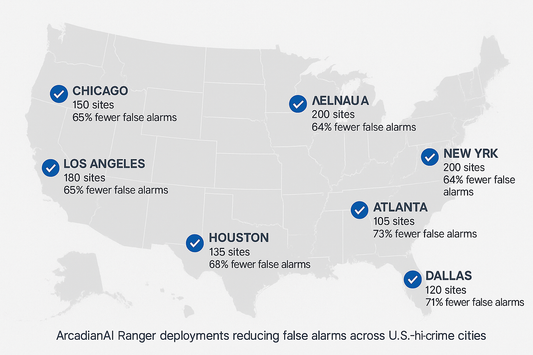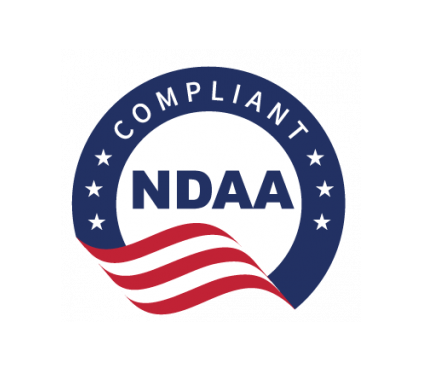Will AI Replace Jobs or Create Value? Unpacking the 2025 Dilemma
Will AI eliminate your job or enhance it? In 2025, the line between human productivity and redundancy is thinner than ever—especially for white-collar professionals. Here’s what’s really happening.

Introduction
Will artificial intelligence replace your job—or help you do it better?
This isn’t just a philosophical question anymore. It’s a daily concern for millions, especially in 2025, as AI tools grow smarter, faster, and more affordable. Once feared only by truck drivers and factory workers, AI is now creeping into law firms, marketing agencies, media outlets, and even government jobs.
The result? A heated global debate.
Is AI stealing our livelihoods—or finally freeing us from repetitive work?
In this article, we’ll explore both sides of this controversy, backed by research, real-world cases, and 2025 trends. We’ll also dive into how businesses, governments, and individuals can adapt—and how ArcadianAI believes ethical, productivity-boosting AI is the future.
Quick Summary / Key Takeaways
-
AI is transforming, not just replacing jobs—especially in white-collar sectors.
-
Roles in law, writing, finance, and analysis are now under automation pressure.
-
However, new AI-driven roles are emerging faster than ever: prompt engineers, AI ethicists, model trainers, etc.
-
The debate centers on one truth: AI can multiply productivity, but without human alignment, it can also multiply displacement.
Background & Relevance
The fear that technology kills jobs is not new. The same fears surfaced during the industrial revolution and the rise of the internet.
But 2025 is different. According to the World Economic Forum, automation and AI are expected to displace 85 million jobs globally by 2025—but also create 97 million new roles more suited to the future of work (WEF, 2020 Future of Jobs Report).
Still, disruption is not evenly distributed.
While blue-collar automation matured over the past decade—think self-checkout kiosks or warehouse robots—2025 marks a tipping point for white-collar disruption.
Core Topic Exploration
The Rise of AI in White-Collar Work
AI in Law
Tools like Harvey AI, powered by OpenAI, are already being used by firms like Allen & Overy to draft legal documents, summarize contracts, and conduct legal research in seconds.
In 2023, over 40% of legal tasks could be automated. By 2025, this number is expected to reach 50% or more for routine legal work (Goldman Sachs).
But this doesn’t mean the end of lawyers. It means the end of junior legal grunt work—giving lawyers time for client interaction, strategic thinking, and negotiation.
AI in Writing and Media
GPT-4, Claude 3, and Gemini Pro now write articles, generate ad copy, and even script video content. Media outlets like BuzzFeed and CNET already tested AI-generated content, with mixed but eye-opening results.
According to Statista, over 35% of marketing and content professionals used generative AI by mid-2024.
While some copywriters may feel threatened, others are embracing AI as a brainstorming and drafting partner.
AI in Finance and Data Analysis
Robo-advisors like Betterment and Wealthfront now offer AI-driven investment portfolios. In enterprise finance, platforms like Kensho analyze large datasets faster than any human analyst.
Even traditional roles like business analysts or financial planners are shifting toward interpretation over computation—AI gives the answers, but humans must ask the right questions.
Where AI Falls Short (For Now)
Despite breakthroughs, AI still struggles with:
-
Contextual nuance (e.g., reading between the lines in court cases)
-
Ethical reasoning
-
Creativity without direction
-
Complex emotional intelligence
This is why collaborative AI, not fully autonomous AI, is the likely future of work.
A study by MIT Sloan found that teams of humans and AI outperform either alone—by as much as 30% in decision-making and problem-solving tasks.
The Emergence of New Jobs
AI may eliminate roles, but it’s also creating them. Here are just a few 2025 roles that didn’t exist five years ago:
| New Role | What They Do |
|---|---|
| Prompt Engineer | Designs effective prompts for AI models like GPT-4 and Claude |
| AI Ethics Specialist | Ensures model outputs are ethical, unbiased, and aligned |
| Model Training Supervisor | Oversees training data and fine-tuning for enterprise-grade models |
| Surveillance AI Analyst | Works with platforms like ArcadianAI to refine threat detection algorithms |
| Human-AI Workflow Designer | Designs systems where humans and AI collaborate in real-time |
These roles demand not only technical fluency, but also human-centered design thinking—skills AI still lacks.
Comparisons & Use Cases
| Legacy Job Paradigm | AI-Augmented Paradigm |
|---|---|
| Data Entry Clerk | Data Pipeline Auditor w/ AI Tools |
| Legal Research Assistant | AI-Augmented Legal Analyst |
| Security Guard | AI Monitoring Assistant (e.g., Ranger by ArcadianAI) |
| Content Writer | AI Copy Strategist |
| Market Researcher | Insight Curator using AI trend engines |
ArcadianAI Example:
Instead of watching security footage all day, business owners or security professionals use Ranger, our AI monitoring assistant, to automatically identify, describe, and report events—reducing false alarms and letting humans focus on response, not review.
Common Questions (FAQ)
Will AI take over my job?
It depends. If your job is highly repetitive, predictable, and doesn't require emotional or creative nuance—it’s at risk. But if your role requires decision-making, leadership, or collaboration, AI will likely augment it.
What jobs are most at risk in 2025?
-
Legal assistants
-
Entry-level content writers
-
Data entry clerks
-
Junior analysts
-
Call center agents
These roles are being rapidly automated or hybridized with AI tools.
What jobs are AI-proof?
No job is 100% AI-proof—but roles that require complex human interaction, ethical judgment, or creativity under uncertainty are more secure. Think educators, therapists, project managers, and ethical AI developers.
How can I future-proof my career?
-
Learn to work with AI, not against it.
-
Build empathy, ethics, and creativity—skills machines still lack.
-
Develop cross-disciplinary knowledge: AI + law, AI + healthcare, AI + security.
-
Stay curious. Learning agility is more valuable than any single degree.
Conclusion & CTA
AI is not a job killer—it’s a job shifter.
As we step deeper into 2025, the question isn’t “Will AI replace me?” but “How can I stay valuable in an AI-driven world?”
Whether you're a lawyer, analyst, writer, or security professional, the future belongs to those who adapt. And for industries like physical security, tools like ArcadianAI’s Ranger show how AI can empower humans, not replace them—offering better safety, fewer errors, and smarter decisions.
👉 Want to see how AI can enhance your team instead of replacing it? Book a demo of ArcadianAI here.

Security is like insurance—until you need it, you don’t think about it.
But when something goes wrong? Break-ins, theft, liability claims—suddenly, it’s all you think about.
ArcadianAI upgrades your security to the AI era—no new hardware, no sky-high costs, just smart protection that works.
→ Stop security incidents before they happen
→ Cut security costs without cutting corners
→ Run your business without the worry
Because the best security isn’t reactive—it’s proactive.






